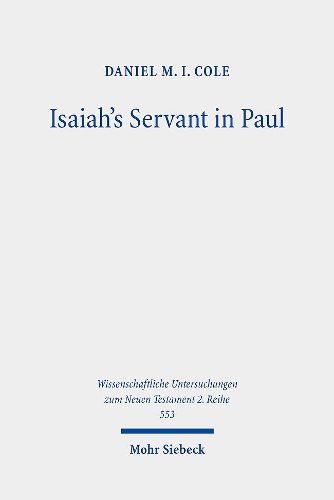Readings Newsletter
Become a Readings Member to make your shopping experience even easier.
Sign in or sign up for free!
You’re not far away from qualifying for FREE standard shipping within Australia
You’ve qualified for FREE standard shipping within Australia
The cart is loading…






Several early Christians identify Isaiah’s Servant of the Lord as Jesus; yet Paul appears to connect the Servant with himself. In this study, Daniel Cole examines the hermeneutical warrants and ethical implications of Paul’s use of texts within Isa. 49-54, arguing that this section constitutes a coherent prophetic narrative in which God saves a new people from sin by the Servant’s death and subsequent work in his followers, the servants. While several Second Temple works interpret elements of this prophecy with differing conceptions of history, Paul sees Isaiah’s Servant fulfilled in Jesus’ death and subsequent spiritual union with the apostle. The author thus demonstrates that the coherent salvation history of the Servant prophecy provides both the interpretive framework for Paul’s reading of Isaiah and the relational definitions for the imperatives that Paul places on himself and others.
$9.00 standard shipping within Australia
FREE standard shipping within Australia for orders over $100.00
Express & International shipping calculated at checkout
Several early Christians identify Isaiah’s Servant of the Lord as Jesus; yet Paul appears to connect the Servant with himself. In this study, Daniel Cole examines the hermeneutical warrants and ethical implications of Paul’s use of texts within Isa. 49-54, arguing that this section constitutes a coherent prophetic narrative in which God saves a new people from sin by the Servant’s death and subsequent work in his followers, the servants. While several Second Temple works interpret elements of this prophecy with differing conceptions of history, Paul sees Isaiah’s Servant fulfilled in Jesus’ death and subsequent spiritual union with the apostle. The author thus demonstrates that the coherent salvation history of the Servant prophecy provides both the interpretive framework for Paul’s reading of Isaiah and the relational definitions for the imperatives that Paul places on himself and others.